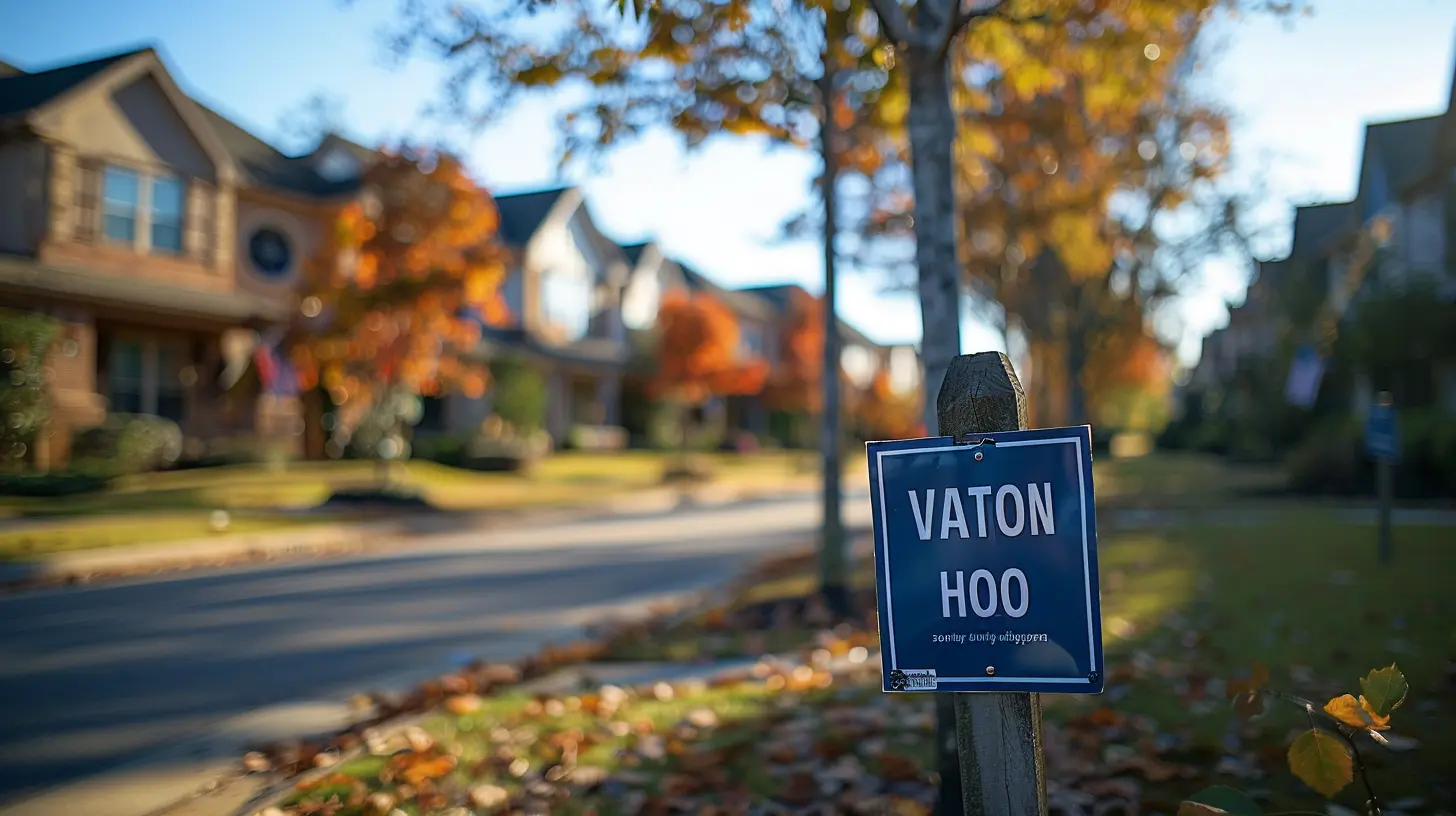What to Know About HOA Voting Procedures
30 August 2025
If you live in a community with a Homeowners Association (HOA), you've probably heard about HOA meetings and voting processes. But do you really know how it all works? HOA voting procedures might seem complicated, but understanding them helps you have a say in the decisions that affect your neighborhood.
So, whether you're a seasoned HOA member or a newbie looking to get involved, let's break it all down in a simple, easy-to-digest way! 
Why Does HOA Voting Matter?
HOAs make big decisions that impact your community, from landscaping to budget allocations, rule changes, and even board elections. Your vote can influence the direction of your neighborhood, making it a better place for you and your neighbors.Think of it like this: if you ignore your right to vote, it’s like refusing to choose what's on the menu for dinner. Someone else will decide for you—and it might not be to your taste! 
The Different Types of HOA Votes
Not all votes are created equal! Depending on the issue, different types of voting methods may be used. Here are the most common ones:1. Board Member Elections
One of the most significant votes an HOA holds is electing board members. These individuals make crucial decisions for the community, so choosing the right people is essential.2. Governing Document Amendments
If the HOA wants to change the rules, such as pet restrictions, parking regulations, or architectural guidelines, homeowners usually get to vote on amendments.3. Budget and Special Assessments
HOAs need funds to maintain common areas and provide services. Homeowners may vote on annual budgets, fee increases, or unexpected expenses (also called special assessments).4. Policy Changes
Sometimes, the HOA introduces new policies, like quiet hours, pool rules, or security measures. These often require homeowner approval.5. Major Projects and Improvements
Thinking about adding a gym, repaving roads, or upgrading community amenities? Homeowners may get a say in these decisions through voting.
The HOA Voting Process: Step by Step
Now that you know what you might be voting on, let's go over how the voting process typically works.Step 1: Notification of an Upcoming Vote
Your HOA must notify homeowners about the upcoming vote. This usually happens through mail, email, a community website, or even posted flyers around the neighborhood.Step 2: Understanding Quorum Requirements
A "quorum" is the minimum number of homeowners who must participate for a vote to be valid. If not enough people vote, the decision might be postponed.Imagine planning a family game night—if not enough people show up, you can’t really play, right? The same concept applies here!
Step 3: Casting Your Vote
HOAs use different methods for voting, including:- In-person voting at meetings
- Mail-in ballots for those who can’t attend
- Electronic voting (some HOAs offer online ballots)
- Proxy voting, where you assign someone else to vote on your behalf
Step 4: Vote Counting and Results
Once the voting period ends, the HOA board or an independent party counts the votes. The results are then announced and recorded in HOA meeting minutes.Step 5: Implementing the Decision
If the vote passes, the board takes the necessary steps to put the decision into action. If it fails, things stay the same (or the issue might be revisited later).
Common Challenges in HOA Voting
Even though HOA voting is straightforward, it does come with a few hiccups. Let's take a look at some common challenges:1. Low Voter Participation
Many homeowners don’t bother voting, either because they’re too busy or don’t think their vote matters. But every vote counts!2. Proxy Confusion
Some homeowners don’t understand how proxy voting works, leading to mistakes or invalid votes. It’s always best to ask for clarification if you’re unsure.3. Controversial Issues
Hot topics like fee increases or rule changes can lead to disagreements. It's essential for homeowners to stay informed and participate in discussions before voting.4. Lack of Transparency
If the HOA board isn’t clear about the voting process or results, homeowners may feel distrustful. Transparency and communication are key!Tips to Make Your Vote Count
Want to be an empowered HOA voter? Here are some quick tips to ensure your voice is heard:✅ Stay Informed – Read meeting agendas and community updates.
✅ Attend Meetings – Participate in discussions before voting.
✅ Clarify Any Doubts – Ask the board if you don’t understand something.
✅ Encourage Neighbors – Remind your community to vote!
✅ Submit Your Ballot On Time – Late votes often don’t count.
What Happens If You Don’t Vote?
Skipping an HOA vote might seem harmless, but it can have real consequences. Without enough participation, important decisions get delayed or made by a small group of people.Think about it like this: if only a few people show up to decide community policies, their opinions will shape your neighborhood—whether you agree with them or not!
Final Thoughts
HOA voting procedures might not be the most exciting topic, but they play a crucial role in shaping your community. By staying informed and participating in elections, you help ensure your neighborhood is managed the way you want it to be.So, next time a ballot shows up in your mailbox or inbox, don’t ignore it—take a few minutes to have your say. After all, a strong community is built on the voices of its residents!
all images in this post were generated using AI tools
Category:
Hoa GuidelinesAuthor:

Lydia Hodge
Discussion
rate this article
1 comments
Kestrel McQuaid
HOA voting: where democracy meets drama! Get ready for power plays and plot twists!
September 13, 2025 at 3:57 AM

Lydia Hodge
Absolutely! HOA voting can be quite the spectacle—packed with excitement and unexpected turns!


